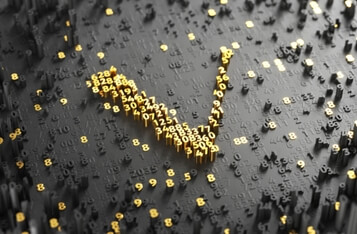PayPal and the Blockchain: An Uneasy Alliance
Image: https://cdn.pixabay.com/photo/2018/04/28/16/11/blockchain-3357567_1280.jpg
Before we discuss the uneasy alliance between the world’s leading digital wallet, PayPal, and blockchain technology, we can start by revealing the main differences between these two fintech solutions.
We can also take a look at whether blockchain is fading away or if it will one day replace PayPal as the most popular online payment solution.
What are the main differences between PayPal and blockchain technology?
PayPal and blockchain are two completely different fintech solution technologies. However, PayPal has recently started using blockchain technology for several of its services.
PayPal is classed as a digital wallet, but it has also been called a web wallet, electronic wallet, mobile wallet or eWallet. It all pretty much means the same thing. It essentially acts as an intermediary between a user and their bank and/or credit/debit card. However, instead of the bank processing the transaction, PayPal does.
This leading global online payment method allows users to make online and offline purchases at the virtual checkout on millions of websites and at point-of-sale machines. You can also send and receive money to other PayPal (and now non-PayPal) users anywhere in the world.
You can also use PayPal to link, store, and manage your bank account and credit/debit card information and set up a PayPal Balance account or use PayPal Credit, which is pretty much the same as a credit card but without a physical card.
The main benefits of using PayPal at the checkout are near-instant transactions to over 110 countries, top-notch cybersecurity, highly encrypted end-to-end connections, and ultimate convenience. It’s also cheap compared to many other well-known traditional online payment methods and APMs (alternative payment methods), and it is extremely user-friendly.
Blockchain is a shared database that facilitates Bitcoin cryptocurrency payments online. This technology stores and distributes transactional data across a highly encrypted network of nodes or blocks of encrypted data, which are permanently chained to one another.
It’s the underlying technology or ecosystem of computer programs that powers most cryptocurrency transactions.
PayPal is a centralized online payment solution, meaning transactions are tracked by central banks/government agencies, but the very nature of decentralized blockchain networks means that transactions can’t be tracked or monitored by these financial institutions/government agencies, which safeguards the very essence of online freedom and anonymity.
Is it safer to use PayPal or Cryptocurrency to pay for goods and services online?
Payment method choice has become a huge factor in how people pay online. Players now often use PayPal at a casino or play at an online casino via a dedicated app as a way to make sure transactions are safe and secure. Those same players can also now use cryptocurrency in many cases, although as a newer payment method, there are still sometimes some hiccups.
Deposits are usually processed instantly, and average withdrawal times are known for being processed in anywhere from five to ten minutes up to two or three hours. However, several factors can determine how long it takes for PayPal withdrawals to be processed, such as the size of the withdrawal, how busy the payment processing department is on the website you are trying to withdraw from, and the time/day of the week you started the withdrawal.
Also, if you haven’t yet completed the KYC (Know Your Customer) ID/age verification process, PayPal withdrawals may take much longer.
Why is there an uneasy alliance between PayPal and blockchain?
To keep up with the latest industry trends and societal ways of investing and spending, PayPal may have to completely change its current business model to keep its platform up to date with how customers and consumers use their money. Blockchain has been steadily growing in popularity for years now and is likely to overtake all other forms of finances incredibly soon.
This will almost definitely make PayPal feel a little uneasy as it could potentially make their whole platform obsolete unless they change models, business strategies, and marketing techniques to bring in these modern crypto users and keep their current customers who are quickly being converted into crypto enthusiasts.
When using cryptocurrency for online transactions, there is no need for centralized banks or digital wallets like PayPal, which is why PayPal may be starting to get worried by this emerging technology that’s taking the world by storm and becoming more mainstream and widely adopted with each day passing.
Final thoughts
It’s hard to say if blockchain will one day completely fade away or become the world’s number one method that people will use to pay for things at the virtual checkout. However, at the current rate of expansion, blockchain networks and cryptocurrencies are almost certainly here to stay for the foreseeable future.
This kind of fintech solution will give PayPal a run for its money, and although it could one day replace PayPal and other fintech solutions, it’s quite unlikely that it will happen any time soon. The sharp rise in the use of cryptocurrencies globally has led to increased speculation that PayPal, Visa, direct/instant bank transfers, and other online payment solutions will become obsolete, but exactly when this might happen is anybody’s guess.
To ensure they don’t resign themselves to the history books, PayPal will have to adapt to the times and ride the proverbial storm.
Users can already use their PayPal personal account to buy, hold, and sell a growing number of cryptocurrencies, such as Bitcoin (BTC), Bitcoin Cash (BCH), Litecoin (LTC), Ethereum (ETH), and the new PayPal stablecoin, PayPal USD (PYUSD) so the changes are already starting to be made may PayPal to update their business model. It will be exciting to see what the future holds for this online eWallet giant.







